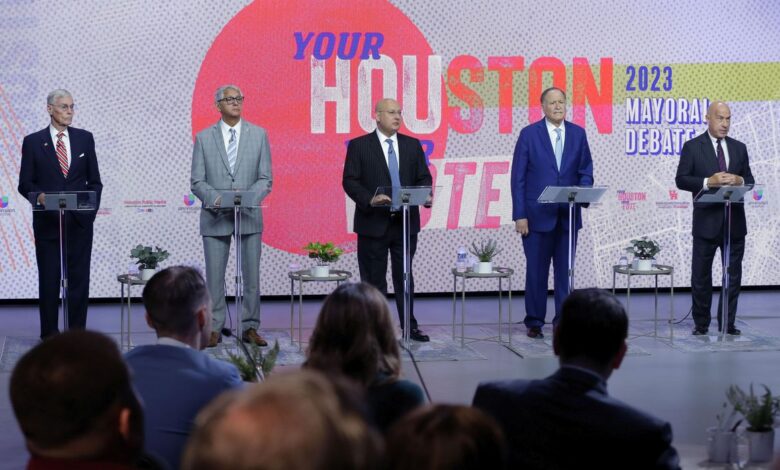
The next mayor of Houston will face many common challenges that plague major cities, including crime, infrastructure deterioration, budget deficits, and a shortage of affordable housing. In the upcoming mayoral election, two familiar Democratic candidates, U.S. Rep. Sheila Jackson Lee and state Sen. John Whitmire, are dominating the race due to their long-standing positions of power in the city. As early voting begins, the crowded field of candidates is struggling to gain traction amidst the political stronghold of these experienced politicians.
Houston’s growth has transformed it into a major Democratic stronghold and a diverse international city. The candidates recognize both the city’s flaws and its potential, shedding its reputation as merely an oil and gas hub to embrace its cosmopolitan character. Although the election is nonpartisan, most candidates are Democrats aiming to replace the incumbent mayor, Sylvester Turner, who has reached his term limit after serving for eight years.
With 18 candidates vying for the position, it is unlikely that any one candidate will secure more than 50% of the vote, resulting in a runoff election. Other contenders in the race include Gilbert Garcia, former head of Houston’s public transit system; Lee Kaplan, an attorney; Robert Gallegos, a Houston City Councilman; and Jack Christie and M.J. Khan, both former council members.
One of the candidates, Gilbert Garcia, understands the misconceptions that people have about Texas and Houston, often seen as “uncultured” and dominated by the oil and gas industry. He believes that Houston is far more than that and can thrive as a cosmopolitan city. Garcia has invested over $3 million of his own money into his campaign so far.
Beyond selecting a new mayor, Democrats are concerned about a recently passed law that allows the state to assume control of voting in Harris County, which includes Houston, if it deems that elections are poorly managed. Voting rights groups fear that Republicans may exploit any election-related issues to gain oversight of future elections in the largest county in Texas by 2024.
While crime rates spiked in Houston during the pandemic, they have since declined. Houston Police Chief Troy Finner recently announced a 5% drop in overall crime compared to the same period last year, with homicides decreasing by nearly 18%. Despite the downward trend, candidate John Whitmire places a strong emphasis on reducing crime, making it one of his highest priorities in the mayoral race.
The challenges faced by Houston are partially attributed to its rapid growth over the past decade. As one of the fastest-growing metropolitan areas in the United States, Houston added over 140,000 residents between 2012 and 2022. However, the city failed to make the necessary investments to maintain its infrastructure, resulting in pothole-riddled streets and water system issues.
Furthermore, the next mayor will have to navigate a potential budget deficit of up to $300 million, hindering investment in Houston’s future. The city aims to diversify its economy and reduce dependence on the oil industry, making it imperative for the new mayor to tackle these challenges effectively.
Sheila Jackson Lee, using her experience securing federal funding in Congress as a notable campaign point, acknowledges Houston’s funding challenges in dealing with issues such as housing and crime. Her vision is to find creative ways to generate revenue and elevate Houston to the ranks of other great American cities.
Activist Johnny Mata hopes that the next mayor will prioritize the needs of the city’s marginalized communities while also addressing concerns about crime and police oversight. The diversity of Houston, with its significant Latino, Black, and immigrant populations, will be a major selling point for the next mayor in attracting new investments and positioning the city as a prosperous and inclusive destination.
Houston’s unique charm lies in its ability to welcome newcomers and offer them opportunities to succeed, as emphasized by Bob Harvey, president and CEO of the Greater Houston Partnership. Although strip centers may not be the most impressive sight, they serve as a platform for immigrants to open successful businesses, contributing to the city’s growth and prosperity.
My perspective: The mayoral race in Houston showcases the challenges faced by many large cities in the United States. This race underscores the importance of experienced leadership and the struggle for newer candidates to gain recognition and support. As Houston continues to grow, it will be crucial for the next mayor to address infrastructure issues and budget deficits while also promoting diversity and inclusivity. Houston’s ability to embrace newcomers and provide them with opportunities defines its character as a city on the rise.




